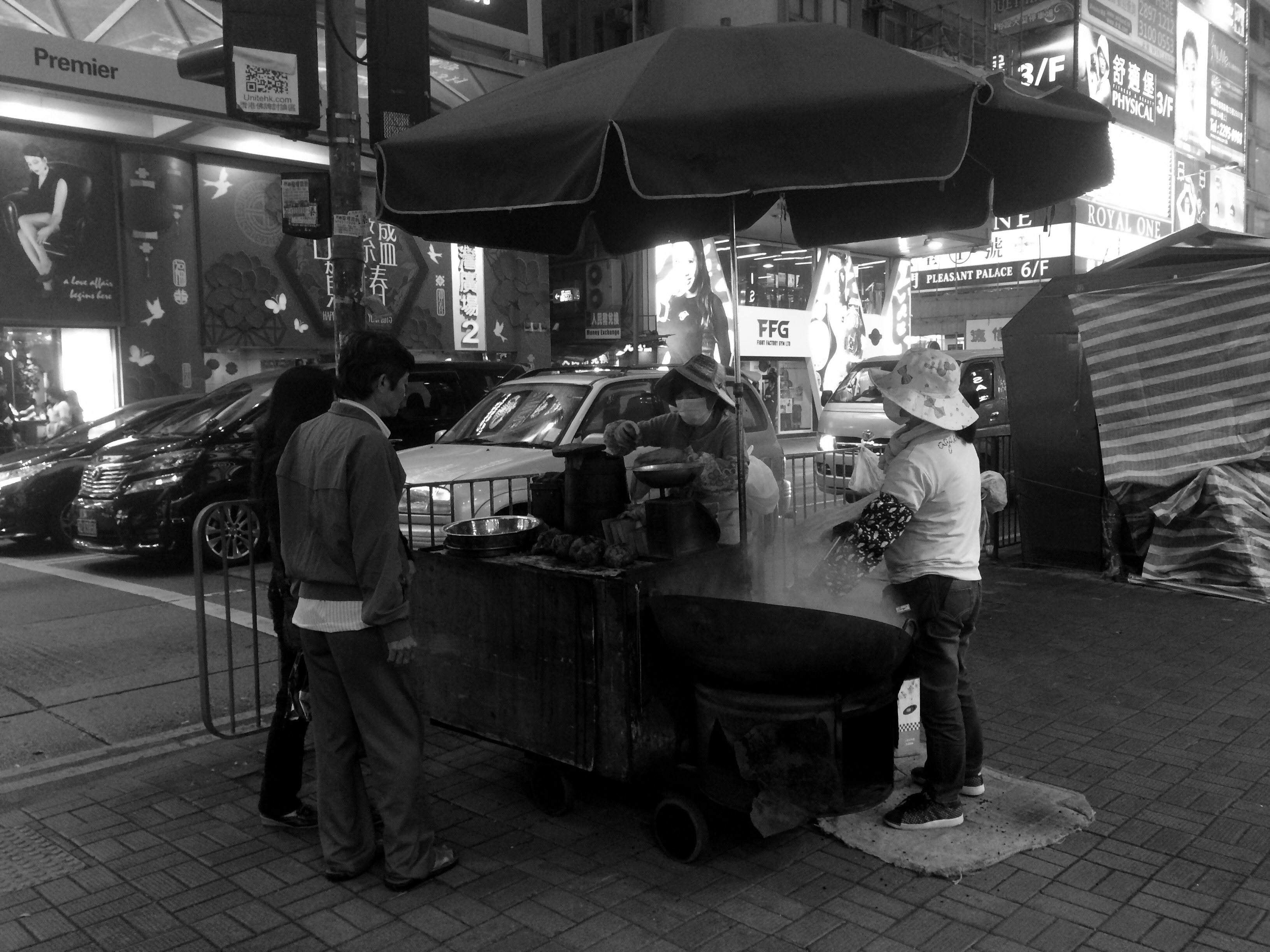Hong Kong Needs More Dai Pai Dongs Not Food Trucks

In his budget address last week, Finance Secretary John Tsang Chun-wah announced he wants to bring food trucks to Hong Kong after watching the movie Chief and thinking it is a good way to help people become more entrepreneurial But these types of eateries already exist. Hong Kong doesn’t need food trucks. It needs more Dai Pai Dongs or smaller food stalls.
Our city has an old and rich street-food culture. Just after the Second World War, the government saw giving licenses for open cooked food stalls as a way to help poorer people earn money and to foster an entrepreneurial spirt among Hong Kongers. In 1974 the number of Dai Pai Dongs and food stalls reached 50,000 – and Hong Kong was firmly established as one of the world capitals of street food.
The government stopped giving out cooked food licences in 1974 due to concerns around hygiene and congestion on the street from the space these food stalls take up. Some of those food stalls used the money they earned from the food stalls to open up restaurants. Others were moved into the cooked food areas above wet markets, and some open food stalls remained either legally or illegally. Today there are only 25 legal open food stalls left, according to the Food and Environmental Hygiene Department. Soon there will be none as the licenses will disappear when the owners retire.
The city should look at ways to give poor people food stall licenses if they want. With rents skyrocketing showing no sign of slowing, dai pai dongs not only help out budding entrepreneurs, but their inexpensive food helps the city. Hong Kongers looking for a cheap meal have fewer and fewer options.
The food truck idea will cost too much and will not get ordinary people into the business. Secretary for Commerce and Economic Development Gregory So Kam-leung estimates the start-up cost for these food trucks to be HK$500,000.
These food trucks will not move and will only serve “gourmet food.” Chan Kong-chiu, a street seller or hawker, told the SCMP, “I think this will just end up helping the chain restaurants or big companies as a marketing ploy,” since the larger companies can afford setting it up.
The Food and Hygiene Department should look at ways to allow for more open cooked food stalls in the city to make sure the food is safe. They need to hire more inspectors to help reduce the cost of the license and make sure the food is safe. Places like Thailand, Korea or Japan have a vibrant street food culture and should be looked at to see how they regulate and allow street food.
Street venders should be required to have the agreement of residents surrounding the area as a condition of the permit. The permission could be given in a form of a petition with contact details it to be verified. The department should always be looking at its own regulations and rules governing cooked food to find ways for helping those who want to open a business.
Allowing food trucks are a great way to help established restaurants. Allowing more Dai Pai Dongs and cooked food stalls are a great way to help people.